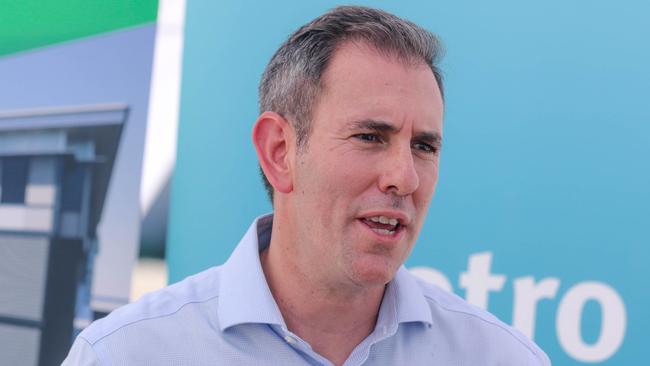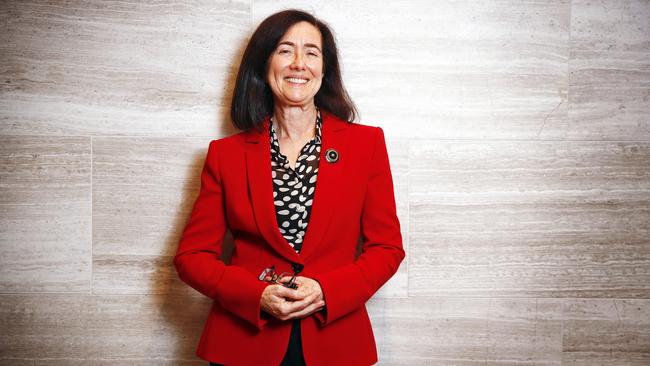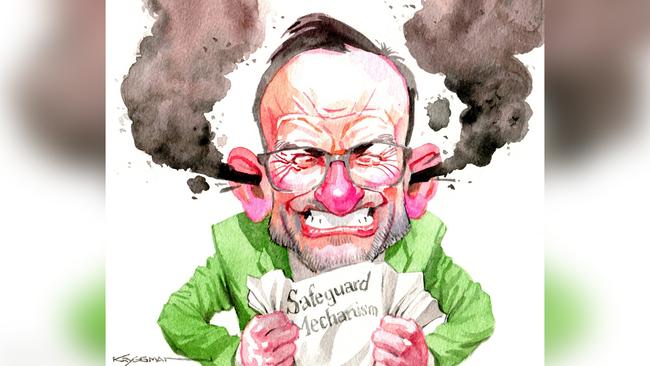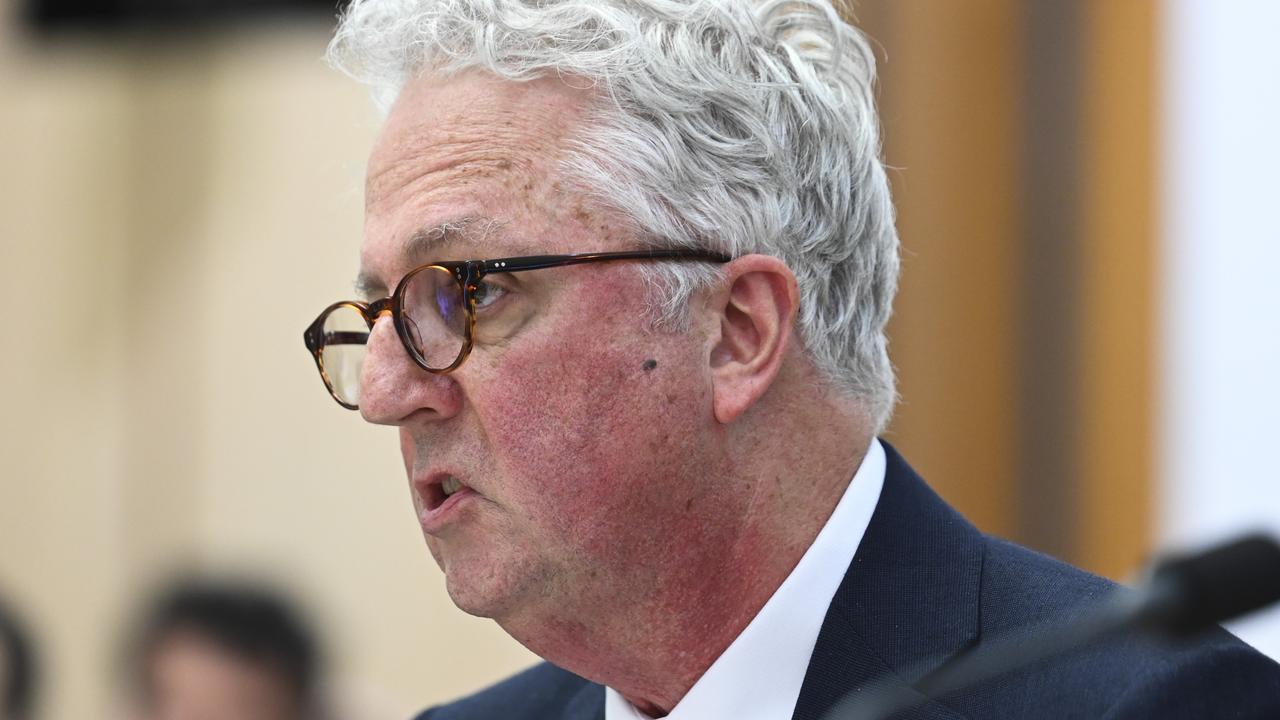
Treasurer Jim Chalmers has taken the first step to opening the ASX to competition. Now he needs to complete the task by forcing the ASX to divest its clearing and settlement functions.
This would put Australia on the same page as the US, Britain and Canada and end the present nonsense where the ASX can effectively make decisions that hamper competing products.
Chalmers has opened the door by issuing draft legislation that gives ASIC and the RBA new powers while adding the ACCC to the regulatory oversight.
The framework will now be in place; the next step needs to be a decision from either an enlightened regulator or for Chalmers to separate the ASX from the clearing functions.
The division accounts for just 14 per cent of ASX earnings, but as recent behaviour has shown, with its long-running technology snafus, the dual control allows it damaging unfettered control over the market.
Chalmers has opened the door to competition, and in doing so actually enacted what then treasurer Scott Morrison said in a press release seven years ago, but in typical fashion but did nothing about.
ASX’s rival, US-based Cboe, which runs the old ChiX, is one of the biggest financial market operators in the world – so all it takes is a regulator with some vision, like Stephen Conroy’s creation of the NBN to end Telstra’s fixed-line monopoly.
Competition is the best market regulator.
Merger delays
Gina Cass-Gottlieb is one year into her reign as ACCC chief, having won plaudits on market studies and consumer scams, but an absolute fail on merger administration. The latter is surprising given Cass-Gottlieb was a highly regarded merger lawyer before taking on the ACCC role, as were two of her colleagues, Liza Carver and Stephen Ridgeway.
The tests for competition regulation are transparency, commercial timeliness and accountability – standards which clearly are not being met.
Cass-Gottlieb has flagged a small-target approach to merger reform. One idea being floated is mandatory merger reporting, which must surely come with strict timelines so business can get on with life.
This week, two more high-profile mergers slated for ruling were delayed, with the Qantas takeover of Alliance deferred for the sixth time in a year. The $610m Alliance Aviation deal was due for a decision on Thursday but has now been delayed until April 20.
The stated reason was a move by Alliance to buy 30 new Embraer jets, and new Qantas lease arrangements.

Both deals simply strengthen the value of the alliance, which is certain to be rejected, but the ACCC appears concerned about a potential Qantas legal challenge to the decision.
To be fair, every regulator will rightly say the merger parties also game the system, which adds to the delays – but at the end of the day it is the ACCC which is meant to set the rules.
The Qantas deal has been considered since May last year so it’s coming up to its first birthday, and it’s an issue the ACCC has studied for four years or more.
Back in 2019 the ACCC, while letting Qantas buy 20 per cent of Alliance, said it wouldn’t allow it to buy the lot because the deal would give it 90 per cent-plus of the Queensland FIFO market and 60 per cent of the WA market.
The regional market feeds into the national market, 70 per cent-plus controlled by Qantas.
The Alliance-Embraer deal was announced three weeks ago so it’s hardly new news.
The second decision delayed is the $2m-odd Woolworths takeover of John Krnc’sIGA store in Karabar outside Queanbeyan: an acquisition which has been on the books since August last year.
The Karabar supermarket is a test case on creeping acquisitions, where a dominant firm buys lots of little rivals which on their own mean nothing but in combination cement a dominant position.
The ACCC knocked backed the deal in 2008 because Woolworths had stores nearby, but Aldi has since opened a dozen stores in the area, making the market more competitive.
The ACCC has seven mergers on its public register. One, the Microsoft-Activision deal, is awaiting offshore rulings; four have been subject to more delays; one is awaiting comment on a negotiated deal; and two others, the Qube-Port of Newcastle and Woolworths and PETstock, are more recent.
In response to questions the ACCC declined to say whether staff in the merger clearance section had been cut to work on market studies on kindergartens and gas. A spokesman added: “There has also been a significant increase in the use of the merger authorisation process. The ACCC has recently received three merger authorisation applications, in telecommunications, cash services and banking. These generate a high workload due to their significant nature.”
She noted “last financial year, 95 per cent of mergers were cleared via pre-assessment, usually within a short time frame”.
Bandt’s dumb decision
Everyone is entitled to make one mistake but to do the same thing twice is plain dumb – and that’s exactly where Greens leader Adam Bandt is taking the country by threatening to block the government’s modest “safeguard” policy reforms.
Back in 2009 the Greens failed to support the Rudd carbon trading scheme. Arguably, if it had been implemented, it would have fast-forwarded the end of coal-fired power stations.
Bandt has an arguable case for wanting no new coal and gas projects, but it comes from a push for a model of absolute zero carbon compared to one of net zero. The latter is a gradual approach with offsets offering an easier transition. One step forward is better than none.
While politicians talk the carbon club is getting more active by the day, with more entrants doing different things.

AirSeed Technologies has just launched a $15m funding round off the back of a $200m partnership with fund manager Conscious Investment Management, which is buying land which will be used in part to grow plants planted through its drone program.
AirSeed drones can plant up to 40,000 seed pods a day, and up to 16 species at a time. It plans to plant 100 million trees by 2024.
The drones review the land, and with data already collected decisions are made on the best vegetation, planting patterns are optimised, and the land is reviewed to see grew and why.
It is working, with Telstra to plant around 158,000 native trees and shrubs in northern NSW, which is expected to store approximately 160,000 tonnes of carbon dioxide over the next 25 years.
Mara Bun has joined the company board, chaired by Stuart Walker and including co-founders Andrew Walker and Andries Louw.
A voice for SMEs
The small business lobby has all but disappeared from the public debate, which has prompted Australian Chamber of Commerce and Industry Andrew McKellar to resurrect a small business policy committee.
In January, the boss of rival COSBOA, Alexi Boyd, quit 18 months into her term amid growing disquiet at the lack of member consultation. Now chair Matthew Addison is acting in the CEO role pending a search.
Addison says the committee is working through a long list of applicants and stresses COSBOA is alive and well.
COSBOA is comprised of small business industry associations but the bulk of its funding comes from government grants for specific policy delivery, which adds to the risk that it is captive to its primary funder.
ACCI’s McKellar convened a meeting last Monday to talk through plans of reviving his small business arm, which will directly challenge COSBOA. It was shut down seven years ago.
Read related topics:ASX



